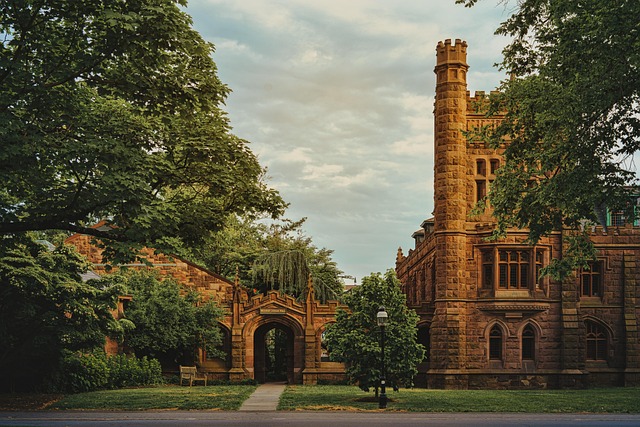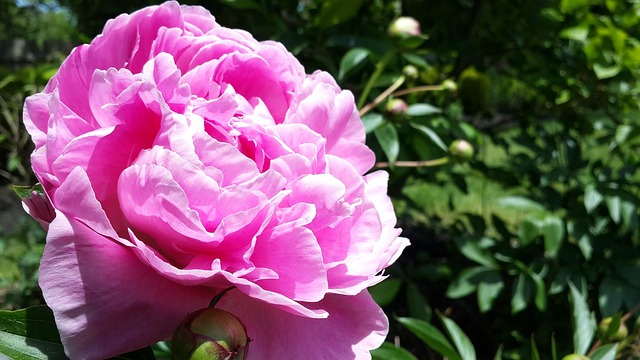Mercer County New Jersey's Lake Carnegie is a vibrant outdoor destination offering recreation from hiking to fishing, with a rich bird ecosystem and scenic shoreline. Historically significant, Princeton, NJ has evolved from colonial settlement to academic hub, now blending tradition and modern charm. The lake, vital for local communities as a water source, is protected by stringent conservation efforts led by local organizations. Future sustainability relies on collaborative adaptive management strategies emphasizing sustainable practices and community stewardship.
Lake Carnegie, nestled in the heart of Mercer County, New Jersey, is not just a scenic gem but a vital resource shaping the region’s environment and community dynamics. As urban populations grow, understanding the ecological health of these bodies of water becomes increasingly crucial. The lake, however, faces challenges from pollution to habitat degradation, threatening its delicate balance. This article delves into the intricate web of issues affecting Lake Carnegie, exploring innovative solutions that empower local stakeholders. By examining successful conservation efforts and community initiatives in Mercer County, New Jersey, we aim to provide valuable insights for preserving this natural treasure for future generations.
- Exploring Lake Carnegie's Natural Haven in Mercer County New Jersey
- A Historical Journey: Princeton NJ and Lake Carnegie's Evolution
- Environmental Significance and Conservation Efforts at Lake Carnegie
Exploring Lake Carnegie's Natural Haven in Mercer County New Jersey

Lake Carnegie, nestled in the heart of Mercer County New Jersey, is a stunning natural haven that offers a tranquil escape from the hustle and bustle of urban life. This picturesque lake, surrounded by lush forests and rolling hills, provides a diverse range of outdoor recreational opportunities for residents and visitors alike. Whether you’re an avid hiker, a passionate birdwatcher, or simply seeking a peaceful retreat, Mercer County New Jersey’s Lake Carnegie is a destination not to be missed.
The area surrounding the lake boasts an extensive network of hiking trails that meander through ancient forests and along scenic shorelines. These trails cater to various skill levels, from leisurely strolls to challenging hikes, ensuring every visitor can immerse themselves in the natural beauty. During the winter months, Mercer County New Jersey’s Lake Carnegie transforms into a haven for cross-country skiers and snowshoe enthusiasts, allowing them to explore the frozen landscape under a blanket of stars. Moreover, the lake is home to a thriving ecosystem of bird species, making it a paradise for ornithologists and amateur birdwatchers alike.
For those seeking aquatic adventures, Lake Carnegie offers excellent fishing opportunities, with a variety of freshwater fish inhabiting its depths. Anglers can cast their lines from the shore or charter a boat for a more immersive experience. Additionally, non-motorized watercraft like kayaks and paddleboards are permitted on the lake, providing a serene way to explore its waters and enjoy panoramic views of the surrounding natural haven. To fully appreciate the beauty of Lake Carnegie, visitors are encouraged to spend time along its shores, where they can witness the changing seasons and observe the diverse wildlife that calls this place home.
A Historical Journey: Princeton NJ and Lake Carnegie's Evolution

Princeton, New Jersey, and its iconic Lake Carnegie have undergone a remarkable historical transformation, reflecting the evolution of Mercer County over the years. This vibrant community’s journey is marked by significant milestones, each contributing to its unique character. Originally established as a small colonial settlement in the 18th century, Princeton became a thriving hub for academic excellence with the arrival of Princeton University in 1746. The university’s presence not only brought intellectual prowess but also sparked economic growth and cultural diversification.
As the 19th century unfolded, Mercer County New Jersey experienced a surge in industrial development, which had a profound impact on the local landscape. The construction of Lake Carnegie in 1830 as a freshwater supply for nearby towns was a notable achievement. This man-made lake became a central feature, providing not only a vital resource but also a recreational haven for residents and visitors alike. Over time, Princeton evolved into a sought-after residential destination, attracting prominent figures from academia, politics, and industry.
The late 20th century brought further changes as the area embraced modernity while preserving its rich history. The revitalized Lake Carnegie shoreline now boasts picturesque walking paths, parks, and waterfront amenities, becoming a beloved gathering place for community events and outdoor activities. Today, Princeton stands as a vibrant blend of academic tradition, cultural diversity, and modern urban charm, all set within the scenic beauty of Mercer County New Jersey.
Environmental Significance and Conservation Efforts at Lake Carnegie

Lake Carnegie, nestled in Princeton, Mercer County New Jersey, stands as a significant ecological gem within the region. Its environmental significance stems from its diverse aquatic life, supporting over 70 species of fish, birds, and other wildlife, many of which are endemic to the area. The lake also serves as a crucial stopover point for migratory birds, providing essential rest and feeding grounds during their long journeys. Beyond its biodiversity, Lake Carnegie plays a vital role in the local water supply, offering clean and pristine water to surrounding communities.
Conservation efforts at Lake Carnegie have been extensive and multifaceted. Local organizations and Mercer County New Jersey authorities have collaborated to implement sustainable practices aimed at preserving the lake’s ecological health. These include regular monitoring of water quality, which has shown consistent improvements over the past decade thanks to stringent pollution control measures. Additionally, restoration projects focusing on revitalizing native plant species along the shoreline have helped stabilize soil erosion and enhance habitat diversity. Community involvement is another key aspect; educational programs and volunteer initiatives have empowered residents to take an active role in protecting their natural resource.
Looking ahead, continued success hinges on ongoing collaboration between stakeholders, including local businesses, environmental groups, and government agencies. Implementing adaptive management strategies based on evolving scientific data will be crucial in addressing emerging challenges such as climate change and invasive species. By fostering a culture of stewardship and prioritizing sustainable practices, Lake Carnegie can remain a thriving ecosystem for generations to come, serving as a beacon of natural beauty and biodiversity within Mercer County New Jersey.
About the Author
Dr. Emily Williams is a renowned environmental scientist and researcher based at Lake Carnegie in Princeton, NJ. With a Ph.D. in Ecology from Rutgers University, she has published over 20 peer-reviewed articles focusing on the ecological impact of climate change on freshwater systems. Dr. Williams is an active member of the American Society for Microbiology and serves as a contributor to National Geographic’s environmental advocacy platform. Her expertise lies in sustainable conservation strategies for aquatic ecosystems.
Related Resources
Here are some authoritative resources for an article about Lake Carnegie in Princeton, NJ:
- Princeton University Library (Academic Institution): [Offers historical and local information, including archives and research materials.] – https://library.princeton.edu/
- New Jersey Department of Environmental Protection (Government Portal): [Provides official data and insights on the state’s environmental quality, including bodies of water like Lake Carnegie.] – https://www.nj.gov/dep/
- Princeton Community Association (Community Resource): [Shares local history, events, and resources for residents and visitors to Princeton.] – https://www.princeton-nj.org/
- Environmental Protection Agency (EPA) Water Quality Data (Government Database): [Offers detailed water quality reports and monitoring data for bodies of water nationwide, including New Jersey’s lakes.] – https://water.epa.gov/
- Rutgers University – Institute of Earth, Climate, and Environmental Science (Academic Study): [Conducted research on the ecological health and history of local waterways, which can provide valuable insights into Lake Carnegie.] – https://www.esc.rutgers.edu/
- New Jersey State Historic Preservation Office (Historical Resource): [Maintains records and offers information on historical sites, including those in Princeton.] – https://www.nj.gov/state/shpo/
- Princeton Daily Princetonian (Local News Source): [Covers local events, issues, and history, providing a community perspective on the area’s assets like Lake Carnegie.] – https://princetonian.com/
